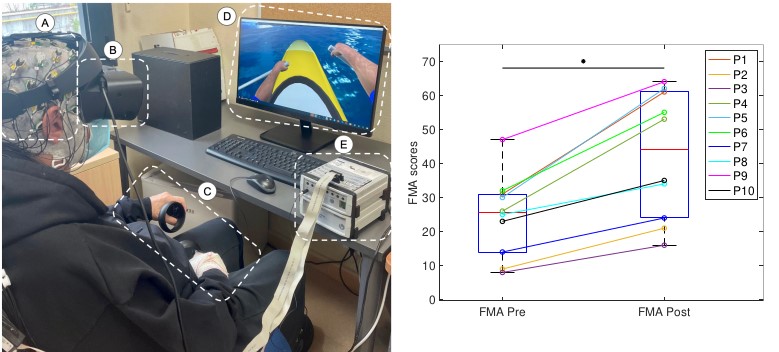Investigating the synergistic neuromodulation effect of bilateral rTMS and VR brain-computer interfaces training in chronic stroke patients

To regain motor function after stroke, patients undergo rehabilitation, typically involving repetitive movement training. For those who lack volitional movement, novel technology-based approaches have emerged that directly involve the central nervous system, through neuromodulation techniques such as transcranial magnetic stimulation (TMS), and closed-loop neurofeedback like brain-computer interfaces (BCIs). This, can be augmented through proprioceptive feedback delivered many times by embodied virtual reality (VR). In this study, we analyzed the Electroencephalographic (EEG) signals acquired from 10 patients with more than 4 months since stroke during a longitudinal intervention with repetitive TMS followed by VR-BCI training. All patients improved after treatment. Additionally, the individual Alpha frequency (IAF) from the EEG showed a significant correlation with clinical outcome. This study furnishes empirical evidence supporting the efficacy of the joint action of rTMS and VR-BCI in enhancing patient recovery. It also suggests a relationship between IAF and rehabilitation outcomes, that could potentially serve as a retrievable biomarker for stroke recovery. See more.
